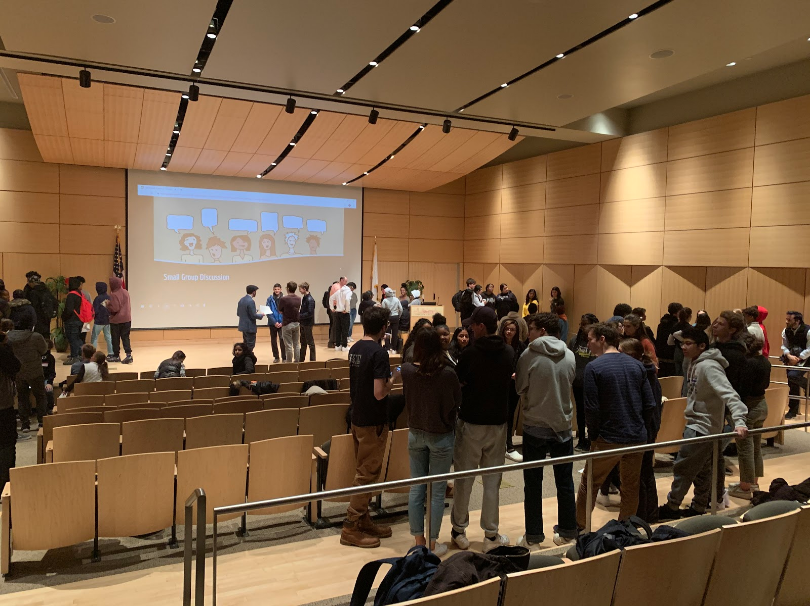“Our Schools” Assembly
Students Discuss Injustices in Education
December 1, 2019
On Thursday, November 14th, Mr. Christopher Montero’s class, “Our Schools: Liberation or Oppression” held an assembly in the basement of the Cambridge Public Library’s main branch next door. The assembly, aptly named after the class, was about the hidden injustices in American school systems, such as the divergent ways students of different backgrounds are labeled by their teachers and peers; the inequalities in disciplining students; and the school to prison pipeline, a process through which students are pushed out of schools and into prisons. The school to prison pipeline is, in other words, a process of criminalizing youth through disciplinary policies and practices within schools that put students into contact with law enforcement. The assembly also addressed undocumented students and the hidden curriculum, the unwritten, unofficial, and often unintended lessons, values, and perspectives that students are taught in school. Each student from the class presented a slide that they created about one of these categories.
Zoe Fritz-Sherman, a junior who is a part of the class, told the Register Forum, ”It was a long process. I can’t remember exactly how long we worked on it for, but it was a while. We split up into teams and worked on different elements of the assembly for a while, and then we came together and started rehearsing” exactly what they would say during the assembly. In one activity, called “walk the line,” the presenters displayed several slides with statements about school environments and students were asked to stand up if they felt like the statements were true for them.
When they discussed labeling and discipline inequalities, the presenters brought up that African American students are up to four times as likely to face harsh punishment for minor rule violations than their white peers. Adi Escamilla-Salmon, a freshman who was an audience member at the assembly, was particularly shocked about hearing these statistics. She said, “I was somewhat educated about oppression in our schools as I have witnessed it and talked about it but wasn’t aware of the statistics. As students, we are in a way below the system and because of this, we can’t always control how we are taught and won’t always have say in our education. This form of oppression is the base of more injustice within our schools and classroom environments.”
In small group discussions, students from the audience were encouraged to share their experiences with these topics of the assembly. Several students shared their experiences and why they found it hard to speak up about them. The final talking point of the presentation was how Americans can change these injustices in our school systems. Students were encouraged to share the information they learned and spread it because creating more awareness is a first step to changing the system more dramatically. In the words of Fritz-Sherman, “I hope that after watching the assembly, members of the audience will look at our school more critically and fight to change any injustices they see around them.”
A shorter version of this piece also appears in our November 2019 print edition.









